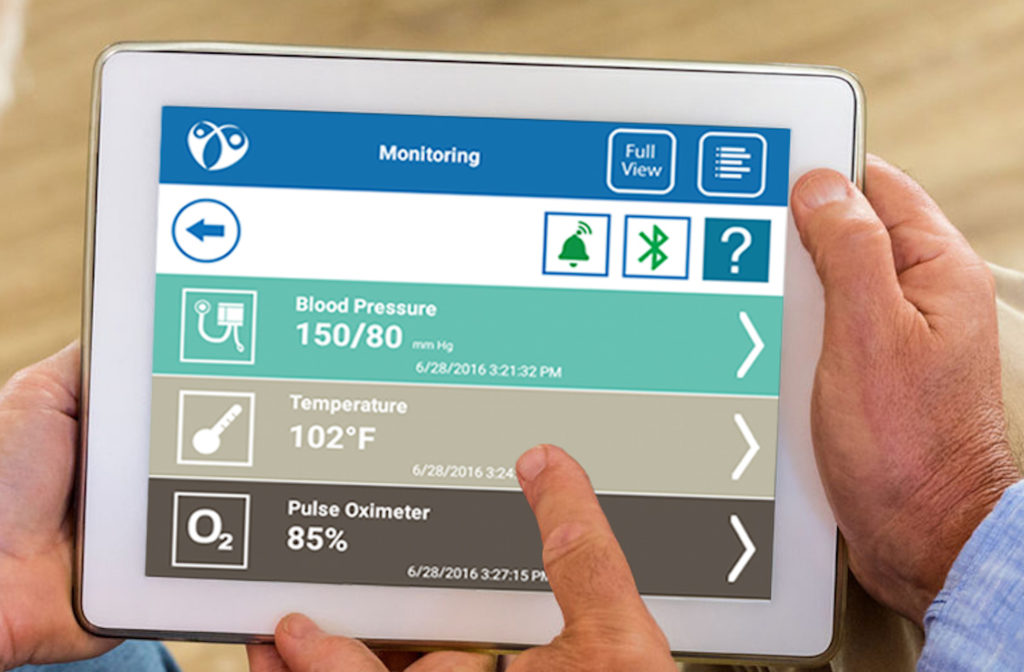
Game Changing Patient Engagement Platform Featured on Discovery Life
December 1, 2018
ACO Challenges and How to Address Them
January 4, 2019Improving Patient Outcomes via e-Health Solutions
With the widespread availability of mobile and internet access, providers have found ways to utilize e-health solutions to improve patient outcomes. While it is important that digital strategies are patient focused in order to provide the most value, there is an essential need to ensure that digital health technology remains engaging and easy to use.
Approximately two-thirds of Americans own a smartphone and 19% of them rely on their smartphones for accessing information online. With this in mind, providers can more easily integrate e-health solutions into the everyday lives of patients.
According to a systematic review, SMS messages and other tools for communicating with patients between medical visits improves overall health outcomes. One example is patients can use pillbox apps that send notification reminders when it is time to take their medication. They can also receive automated text alerts and live telephone calls from their providers to actively monitor adherence to treatment.
In a study conducted by the iNephro initiative, a smartphone application was developed where users could change medication lists and alert users to take medication at a pre-specified time. The study concluded that 11,000 users downloaded the application and chronically ill users regularly used it over a longer period of time.
Additionally, patient satisfaction is notably higher when there are simple and secure methods to share medical history with their providers. Web-based data systems and patient portals can house information such as laboratory values, vitals, and disease state information in one place. This would bypass administrative costs and unnecessary lab testing that comes with a lack of coordination in care.
With the emergence of telemedicine services, providers can now remotely monitor their patients and provide consultations. These services would further eliminate time wasted in transportation and office visits which would lead to lower healthcare costs. One interesting statistic we found from a study from Cisco determined that up to 74 percent of patients prefer discussing health concerns with providers through technological means such as video calls.
Other e-health solutions, such as remote monitoring tools, can help patients and their providers keep track of their health. For example, patients with hypertension or diabetes can measure their blood pressure or glucose with advanced monitoring tools which then share results to a cloud-based information system. Data collection tools can offer providers with essential information as well as provide instant feedback for patients with urgent concerns, such as blood pressure above an allowable threshold.
Ultimately, the focus of e-health solutions should be on merging digital strategies with patient behaviors. Tools and applications have the potential to be too complex for a patient or provider to use; however, with the right design and strategy, patients will be actively engaged in their health which will reflect in improved health outcomes. As the prevalence of chronic illness increases in older adults, the use of digital health solutions can complement or even replace traditional health management strategies.

